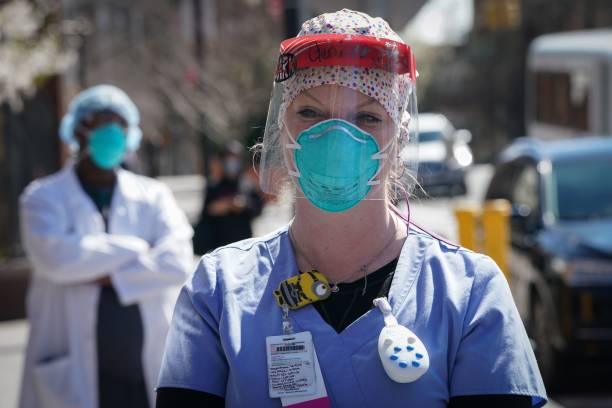Most Americans who find themselves restricted to home in this stressful time, fighting boredom and worry, also feel grateful toward the medical professionals battling the Covid-19 pandemic. And those dedicated people deserve every bit of that gratitude.
But there are many, many others also out there, doing their jobs, literally risking their lives for all the rest of us, fighting to maintain a semblance of our society and culture.
So here’s a list (in alphabetical order) of those we should thank – and, if possible, say it aloud, with a salute or a wave or even a bow to acknowledge their work:
Ambulance crews, those most truly on the “front lines”; Appliance repairers – they have to come into your house when the fridge breaks – and you need that fridge; Bus drivers – they never know what craziness they’ll face during their workday (subway and commuter train workers, too); Caregivers – they signed up to support the elderly and the infirm, who now are especially vulnerable to the virus, including many suffering from dementia;
Cleaning workers – true unsung heroes, going about their vital tasks, too often ignored; Cooks & servers – what the hell would the rest of us do without takeout or delivered meals, most especially others on this list; Doctors – well, that’s obvious, right?; Farmers/farm workers – we all gotta eat, especially when times are this tough, and they keep our food supply moving; Firefighters – they face danger daily, fighting fires and responding to other emergencies while the virus lurks;
Grocers – yes, grocers, and checkout clerks and those who mop up messes in the aisles, while masked shoppers inevitably invade their 6-foot spaces; ER/hospital workers/support staff – this needs not be said, but say it anyway: they are essential players in health care for everyone; Journalists/reporters – they rarely get the credit they deserve for keeping the rest of us informed;
Medical researchers/analysts – the ones we’re all counting on to risk being in contact with the virus while figuring out how to kill it; Military personnel – crammed onto ships, training at close quarters, flying vital supplies around the world, despite the obvious threat; Nurses – oh, nurses, a SPECIAL case (*see below for more on them); Office workers/administrators for all – almost nothing gets done without somebody working to keep it organized, to keep track of who needs what and making certain they get it;
Paramedics – wow, what an amazing job they do all the time, but especially now; Pharmacists – they ensure the sick and the still-well receive the medications they need, while inevitably coming close to the infected, who may not even have symptoms; Police – the dedicated men and women who are always, always on the line for us and who risk everything to protect all these others;
Postal/Delivery workers – they perform some of the most vital tasks of all, getting needed stuff from point A-to-B, while at risk nearly every minute of the day; Trash collectors – yikes, what would we do without them?; Truckers, local & long-haul – the biggest, toughest link in the get-stuff-where-it-needs-to-go chain (also freight train crews); Utility workers – seriously, what would we do without reliable electricity, water, gas?
*So let’s get back to the nurses. Most of us think we know what they do, supporting physicians and helping the sick and injured recover. But it’s difficult to fully appreciate their willingness to risk everything without hearing directly from one who does it, who is doing it, today and every long, hard day.
A recent op/ed essay in the New York Times offers such a first-hand look. It’s by Simone Hannah-Clark, a nurse in New York City. Here are some samples:
“I am one of the many thousands of nurses who work in intensive care units in New York. We are not handmaidens or angels. We are professionals in our own right. We turn treatment plans into action. We question when things don’t make sense or aren’t going to work. We find solutions that work for our patients. Nurses assess and observe, question and console. We stand between the patient and the enemy. We are the front line.”
“My first task [on this day] is to help with post-mortem care on a Covid patient we just lost. We had watched her slowly die over the past few days. We did everything we could. It’s just me and a nursing colleague in the room. It’s a grim affair. We wrap the patient’s body securely, stroking her brow and wishing her well on her next journey…. I have to collect her belongings because security isn’t allowed to come into the room. It moves me to see her wallet, her planner, her toiletries. Only a week ago she was a person with a future, with plans, with cherry-flavored lip balm.”
“I’m still there an hour and a half after our shift change. I want to go home but it’s hard to leave. There is so much still to do. We always have to remind one another that nursing is a 24-hour profession. We hand off to our night nurses…. I walk into my apartment backward, leaving my shoes at the door, spraying Lysol behind me, headed for the shower. The kids are asleep. My husband gives me a smile but knows we won’t greet each other till I’m scrubbed, head to toe. Even then we keep our distance, sleeping in separate rooms.”



